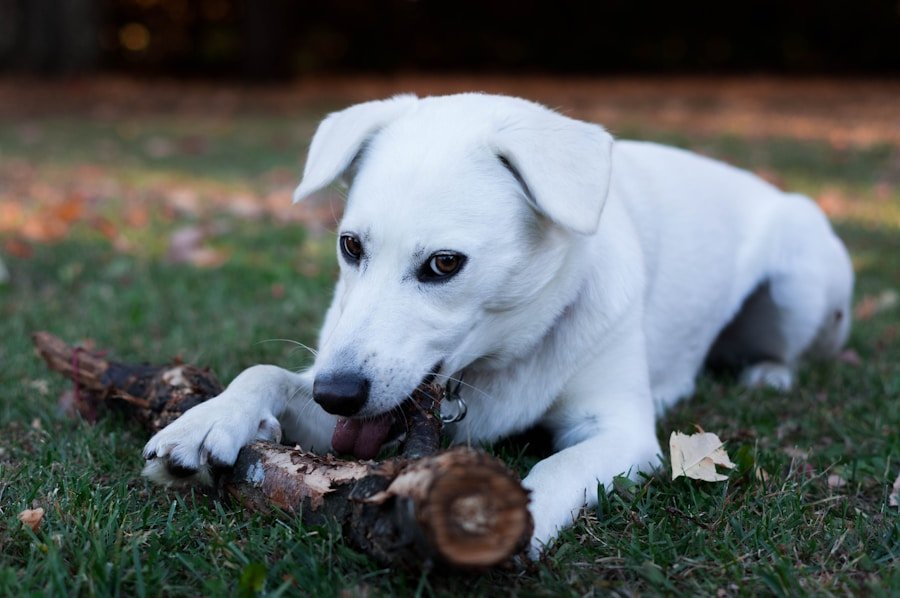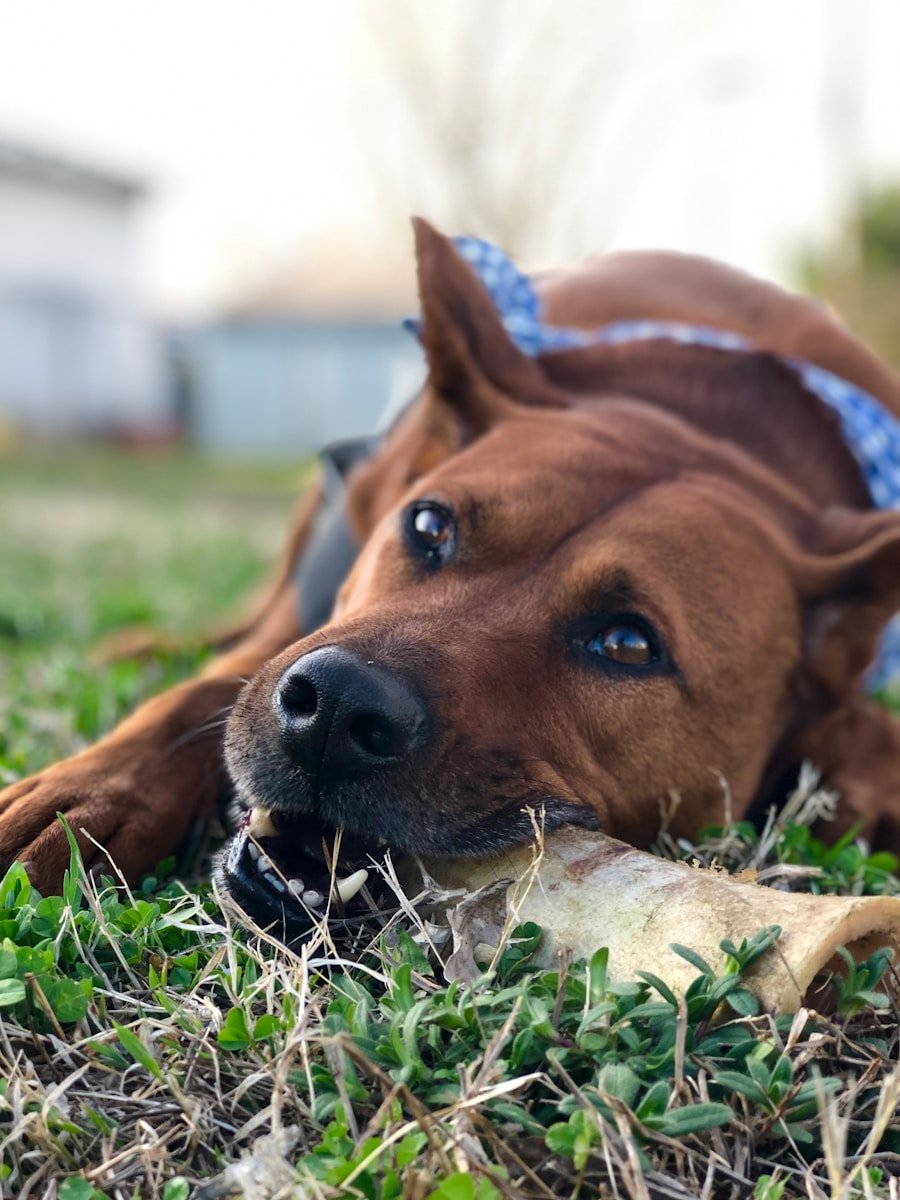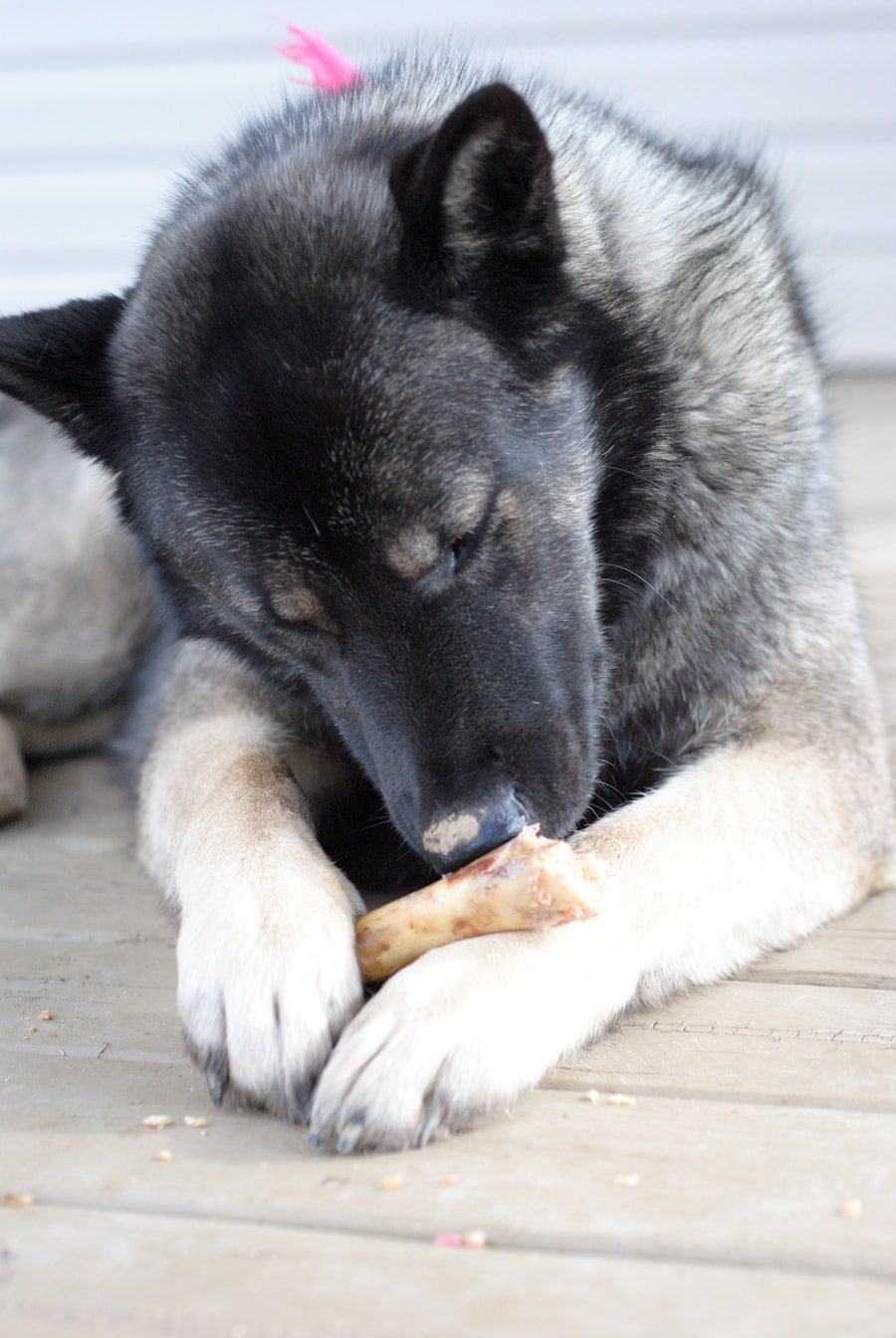Table of Contents
Feeding dogs chicken bones is a practice that many pet owners may not think twice about, but it can pose significant dangers to their furry companions. While it might seem natural to share leftover bones from a family meal, the reality is that chicken bones can splinter easily, leading to serious health complications. When dogs chew on these bones, they can break into sharp fragments that can cause choking or lacerate the digestive tract.
This risk is particularly pronounced with cooked chicken bones, which are more brittle than their raw counterparts. Moreover, the size and shape of chicken bones can also contribute to the hazards they present. Small dogs may be at a higher risk of choking on larger bones, while larger breeds may not be able to digest them properly.
The potential for injury is not limited to just the throat or esophagus; sharp bone fragments can puncture the stomach or intestines, leading to internal bleeding and severe pain. In some cases, these injuries may require surgical intervention, which can be both costly and traumatic for both the dog and its owner.
Key Takeaways
- Feeding dogs chicken bones can pose serious dangers, including choking, intestinal blockage, and injury to the mouth, throat, and digestive tract.
- Dogs are not able to fully digest chicken bones, which can splinter and cause internal damage.
- Potential health risks of dogs eating chicken bones include gastrointestinal perforation, constipation, and bacterial contamination.
- Safe alternatives to chicken bones for dogs include rawhide chews, bully sticks, and specially designed dental chews.
- If you choose to feed chicken bones to your dog, make sure they are raw, uncooked, and large enough to prevent swallowing whole. Always supervise your dog while they are eating bones.
Can Dogs Digest Chicken Bones?
The question of whether dogs can digest chicken bones is complex and often misunderstood. While dogs are omnivorous and possess a digestive system capable of breaking down various foods, chicken bones present unique challenges.
However, even raw bones can pose risks if they splinter during chewing, leading to potential blockages or injuries in the gastrointestinal tract. It is essential to recognize that not all dogs will react the same way to chicken bones. Some dogs may have stronger jaws and a more robust digestive system that allows them to handle raw bones without issue.
Others, particularly those with pre-existing health conditions or sensitive stomachs, may struggle to process even small pieces of bone. Therefore, while some dogs may manage to digest chicken bones without immediate problems, the risks associated with feeding them are significant enough that many veterinarians advise against it altogether.
Potential Health Risks of Dogs Eating Chicken Bones

The potential health risks associated with dogs consuming chicken bones are numerous and varied. One of the most immediate concerns is choking, which can occur if a dog tries to swallow a piece of bone that is too large or sharp. This can lead to a blockage in the throat, making it difficult for the dog to breathe and requiring urgent medical attention.
Additionally, if a bone becomes lodged in the esophagus, it can cause severe pain and distress. Beyond choking hazards, there are also risks of internal injuries. Sharp bone fragments can puncture the lining of the stomach or intestines, leading to peritonitis, a life-threatening condition characterized by inflammation of the abdominal cavity.
Symptoms of such injuries may include vomiting, lethargy, abdominal pain, and loss of appetite. In severe cases, these injuries can result in sepsis or even death if not treated promptly. Furthermore, ingesting bones can lead to constipation or other digestive issues as the body struggles to process indigestible materials.
Safe Alternatives to Chicken Bones for Dogs
| Treat | Description | Benefits |
|---|---|---|
| Raw Carrots | Crunchy and low in calories | Helps clean teeth and provides vitamins |
| Apple Slices | Sweet and high in fiber | Provides vitamins and aids in digestion |
| Sweet Potato Chews | Natural and chewy | Rich in vitamins and minerals |
| Green Beans | Crunchy and low in calories | Provides fiber and nutrients |
Given the risks associated with feeding chicken bones to dogs, many pet owners are left wondering what safe alternatives exist. Fortunately, there are numerous options available that can satisfy a dog’s natural chewing instincts without posing significant health risks. One popular alternative is raw meaty bones, such as beef or lamb bones, which are less likely to splinter and provide essential nutrients for dogs.
Another option is commercially available dog chews made from natural ingredients. These chews come in various shapes and sizes and are designed specifically for canine consumption. They often contain added vitamins and minerals that promote dental health and overall well-being.
Additionally, many pet stores offer dental chews that help reduce plaque buildup while providing a satisfying chewing experience for dogs.
How to Safely Feed Chicken Bones to Dogs
If you still wish to feed your dog chicken bones despite the associated risks, it is crucial to do so safely and responsibly. First and foremost, only raw chicken bones should be considered for feeding; cooked bones should be strictly avoided due to their increased likelihood of splintering. When offering raw bones, ensure they are appropriately sized for your dog’s breed and size to minimize choking hazards.
Supervision is key when feeding any type of bone to your dog. Always monitor your pet while they chew on bones to ensure they do not attempt to swallow large pieces or exhibit signs of distress. Additionally, it is advisable to limit the frequency with which you offer bones as part of your dog’s diet.
Regularly feeding bones can lead to digestive issues or an imbalance in nutrition if not managed carefully.
Signs of a Dog Having Eaten Chicken Bones

Recognizing the signs that your dog has consumed chicken bones is essential for ensuring their health and safety. Symptoms may vary depending on whether the dog has experienced choking or internal injury. If a dog is choking, you may notice signs such as gagging, coughing, pawing at their mouth, or difficulty breathing.
In such cases, immediate action is required to remove the obstruction. If your dog has ingested chicken bones without immediate choking, keep an eye out for other symptoms that may indicate internal distress. These can include vomiting, lethargy, abdominal swelling or pain, loss of appetite, and changes in bowel movements such as diarrhea or constipation.
If you observe any of these signs after your dog has eaten chicken bones, it is crucial to seek veterinary assistance promptly.
What to Do if Your Dog Eats Chicken Bones
If you suspect that your dog has eaten chicken bones, it is vital to act quickly and calmly. First, assess whether your dog is showing any signs of distress or choking. If they are choking and unable to breathe properly, you may need to perform first aid techniques such as the Heimlich maneuver for dogs or take them immediately to an emergency veterinarian.
If your dog appears fine but has consumed chicken bones, monitor them closely for any signs of discomfort or distress over the next few hours. It is advisable not to induce vomiting unless directed by a veterinarian, as this could exacerbate any potential injuries caused by sharp bone fragments. Instead, contact your veterinarian for guidance on how best to proceed based on your dog’s specific situation.
The Importance of Consulting a Veterinarian
Consulting a veterinarian is crucial when it comes to your dog’s health and well-being—especially after they have consumed something potentially harmful like chicken bones. Veterinarians possess the expertise needed to assess your dog’s condition accurately and recommend appropriate treatment options if necessary. They can provide valuable advice on how to manage any symptoms your dog may be experiencing and help you understand the potential risks involved.
In addition to addressing immediate concerns related to bone ingestion, a veterinarian can also offer guidance on safe dietary practices for your dog moving forward. They can recommend suitable alternatives to chicken bones that will satisfy your dog’s chewing instincts while minimizing health risks. Regular check-ups with a veterinarian will ensure that your dog remains healthy and happy throughout their life.
In conclusion, while sharing chicken bones with dogs may seem harmless at first glance, the potential dangers far outweigh any perceived benefits. Understanding the risks associated with feeding chicken bones and recognizing safe alternatives will help ensure your furry friend remains healthy and safe. Always prioritize your dog’s well-being by consulting with a veterinarian whenever you have concerns about their diet or health.
If you’re wondering whether dogs should eat chicken bones, you may want to check out this article on the costs of owning and taking care of a dog today. It provides valuable information on the responsibilities and financial considerations involved in pet ownership, including the importance of providing a safe and healthy diet for your furry friend. Remember, it’s always best to consult with a veterinarian before feeding your dog any potentially harmful foods like chicken bones.
FAQs
Are chicken bones safe for dogs to eat?
No, chicken bones are not safe for dogs to eat. They can splinter and cause serious injury or even death if ingested.
What should I do if my dog eats a chicken bone?
If your dog has ingested a chicken bone, it is important to seek immediate veterinary attention. Do not induce vomiting or try to remove the bone yourself, as this can cause further harm.
What are the risks of dogs eating chicken bones?
The risks of dogs eating chicken bones include choking, internal punctures, and digestive tract obstruction. These can lead to serious health issues and may require surgical intervention.
Can cooked chicken bones be given to dogs?
No, cooked chicken bones are even more dangerous for dogs than raw bones. Cooking makes the bones more brittle and prone to splintering, increasing the risk of injury.
What are safe alternatives to chicken bones for dogs?
Safe alternatives to chicken bones for dogs include raw bones specifically designed for canine consumption, such as raw beef or lamb bones. It is important to supervise your dog while they are chewing on any type of bone.


